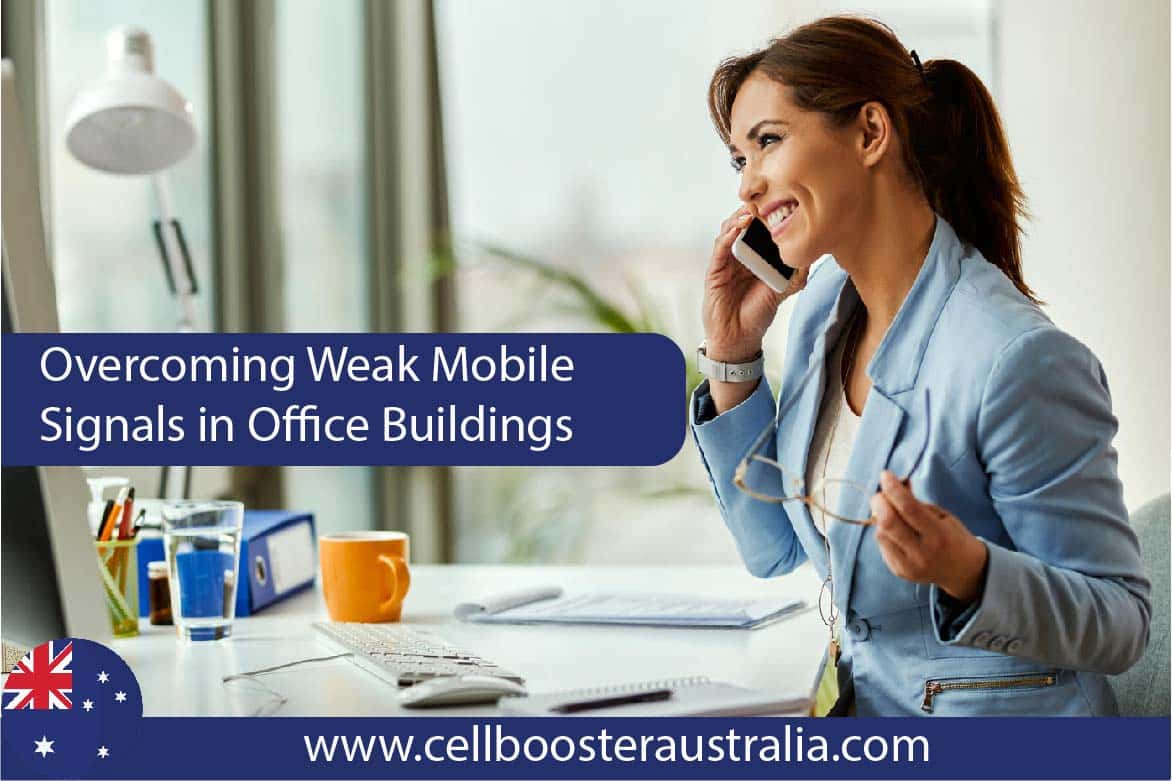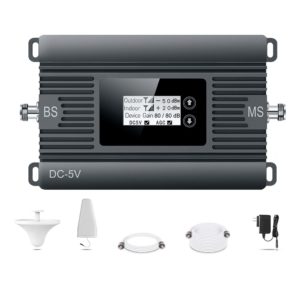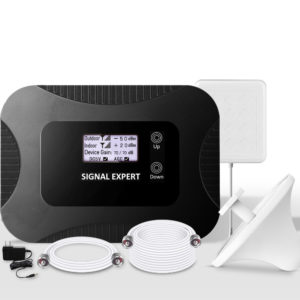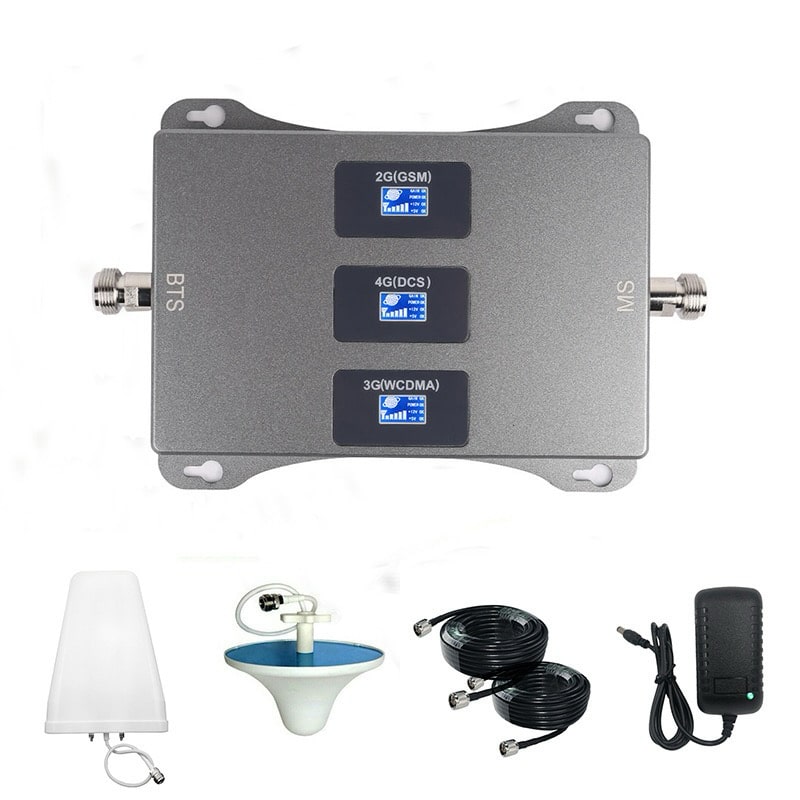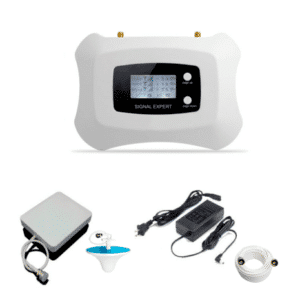Overcoming Weak Mobile Signals in Office Buildings
In today’s digital age, a reliable mobile signal is essential for seamless communication and productivity in office environments. However, weak mobile signals can be a common issue in office buildings, leading to dropped calls, slow data speeds, and frustrated employees. In this article, we will explore effective strategies and solutions to overcoming weak mobile signals in office buildings, ensuring uninterrupted connectivity and efficient communication for businesses across Australia.
Understand the Factors Affecting Signal Strength
To address weak mobile signals effectively, it’s important to understand the factors that contribute to signal strength issues within office buildings. Common factors include the building’s construction materials, the presence of obstructions like walls or metal structures, and the distance from cell towers. Identifying these factors will help determine the most suitable solutions for improving signal strength.
Assess the Current Signal Strength
Before implementing any solutions, it’s crucial to assess the existing signal strength within the office building. This can be done using mobile signal strength measurement apps or tools that provide signal strength readings. By conducting a thorough signal assessment, you can identify problem areas and focus on improving signal reception where it is needed the most.
Install Mobile Signal Boosters
One of the most effective solutions for overcoming weak mobile signals in office buildings is the installation of mobile signal boosters. Signal boosters, also known as repeaters or amplifiers, capture existing outdoor signals, amplify them, and distribute the enhanced signal throughout the building. These devices can significantly improve signal strength and coverage, ensuring reliable mobile connectivity for employees throughout the office.
Choose the Right Signal Booster
When selecting a mobile signal booster for your office building, consider factors such as the size of the building, the number of floors, and the desired coverage area. Different signal boosters offer varying signal amplification capabilities, so it’s important to choose a model that matches your specific needs. Consulting with professionals or signal booster experts can help you make an informed decision. Our signal boosters can cover 300 SQM, 500 SQM, 1000 SQM, and 5000 SQM areas. Also, keep in mind that the 300 SQM signal booster supports up to 6 users, the 500 SQM signal booster supports up to 10 users, the 1000 SQM signal booster supports up to 25 users, and the 5000 SQM signal booster supports up to 300 users at a time.
Since, the staff in your office would be using different mobile networks like Telstra, Vodafone, and Optus, so choosing a Universal Signal Booster is the most intelligent option. As the Universal Signal Booster boosts all types of signals i.e., 2G, 3G, 4G and for all the mobile networks. This saves you the hassle of buying and setting up different signal boosters for different mobile networks.
Optimize Antenna Placement
Proper antenna placement is crucial for maximizing the effectiveness of signal boosters. Outdoor antennas should be strategically positioned to capture the strongest possible signal from nearby cell towers. Indoor antennas should be strategically placed to ensure optimal signal distribution throughout the office space. Experimenting with antenna placement and consulting with experts can help achieve the best signal coverage.
Implement Wi-Fi Calling and VoIP
To overcome weak mobile signals, consider utilizing alternative communication technologies such as Wi-Fi Calling and Voice over Internet Protocol (VoIP). These technologies allow employees to make calls and send messages over Wi-Fi networks instead of relying solely on cellular signals. Implementing Wi-Fi Calling and VoIP can significantly improve call quality and reduce reliance on cellular connectivity.
Use Femtocells or Microcells
For office buildings with limited or no mobile signal reception, femtocells or microcells can be considered. These devices utilize the internet connection to create a small cellular network within the building. They provide a localized mobile signal and can be beneficial in areas where outdoor signal penetration is minimal. Consult with your network provider to explore the feasibility and compatibility of these solutions.
Minimize Signal Interference
Interference from electronic devices, such as Wi-Fi routers, can impact mobile signal quality. To minimize signal interference, ensure proper separation between signal boosters and other electronic devices. Additionally, use high-quality cables and connectors to reduce signal loss and maintain optimal signal integrity.
Consider External Antennas or Distributed Antenna Systems (DAS)
In cases where weak signals persist despite other efforts, external antennas or Distributed Antenna Systems (DAS) can be viable options. External antennas, such as directional or Yagi antennas, can be installed on rooftops or other elevated positions to capture stronger signals to ensure reliable mobile signal reception. Distributed Antenna Systems (DAS) involve the installation of a network of antennas throughout the building, allowing for improved signal distribution and coverage.
Conduct Regular Maintenance
Once you have implemented signal enhancement solutions, it’s important to conduct regular maintenance and monitoring. Check the signal boosters, antennas, and cables periodically to ensure they are functioning optimally. Additionally, stay updated with the latest firmware or software upgrades for your signal-boosting equipment to maximize performance.
Consult with Professionals
If you’re facing persistent signal issues despite implementing various solutions, it’s advisable to consult with professionals who specialize in signal optimization. They can conduct a thorough analysis of your office building’s signal environment and provide tailored recommendations to overcome signal challenges.
Consider External Factors
In addition to internal factors within the office building, it’s important to consider external factors that may affect mobile signal strength. Factors such as the proximity of nearby tall buildings, geographical features, and distance from cell towers can impact signal reception. Understanding these external factors can help in devising effective solutions.
Network Provider Considerations
Different network providers may have variations in signal coverage and quality. It’s advisable to research and understand the coverage and performance of different network providers in your area. This information can help in choosing the right network provider for your business and ensuring better mobile signal reception.
Conduct a Site Survey
Before implementing any signal enhancement solutions, consider conducting a site survey. A professional site survey can provide a comprehensive analysis of the signal environment within the office building. It can help identify dead zones or areas with weak signal reception, allowing you to focus your efforts on addressing those specific areas.
Implement Signal Monitoring Systems
To ensure ongoing signal performance, consider implementing signal monitoring systems. These systems continuously monitor the signal strength and quality in real-time. By monitoring signal metrics, such as signal strength, signal-to-noise ratio, and signal stability, businesses can proactively identify and address any signal issues that may arise.
Educate Employees
Educating employees about the importance of maintaining a reliable mobile signal and how to optimize their devices for better reception can make a significant difference. Encourage employees to position their devices near windows or in areas with better signal reception, avoid signal-blocking obstacles, and report any persistent signal issues to the IT department.
Follow Regulatory Guidelines
Ensure that any signal enhancement solutions implemented comply with local regulatory guidelines and obtain necessary permissions from relevant authorities. Adhering to regulations ensures the legal and responsible use of signal-boosting equipment. Our mobile signal boosters are built in accordance with the Telecom Regulatory Authority of Australia. Hence, our signal boosters are completely safe and legal to use in Australia for both personal and commercial purposes.
Conclusion
Reliable mobile signal is crucial for businesses in Australia to ensure uninterrupted communication and productivity. By understanding the factors affecting signal strength, installing signal boosters, optimizing antenna placement, utilizing alternative communication technologies, and considering advanced solutions like DAS, businesses can overcome weak mobile signals in office buildings. Regular maintenance and professional consultation further contribute to a reliable mobile signal environment.
Don’t let weak mobile signals hamper your business operations. Invest in a high-quality mobile signal booster from us today and experience improved connectivity and productivity in your office. Visit our website now to explore our range of signal-boosting solutions tailored to your specific needs.
Remember, a strong mobile signal is the foundation of efficient communication in the workplace. Empower your business with reliable connectivity and stay connected wherever you are within your office building. If you have any questions regarding any of our products please contact us.


